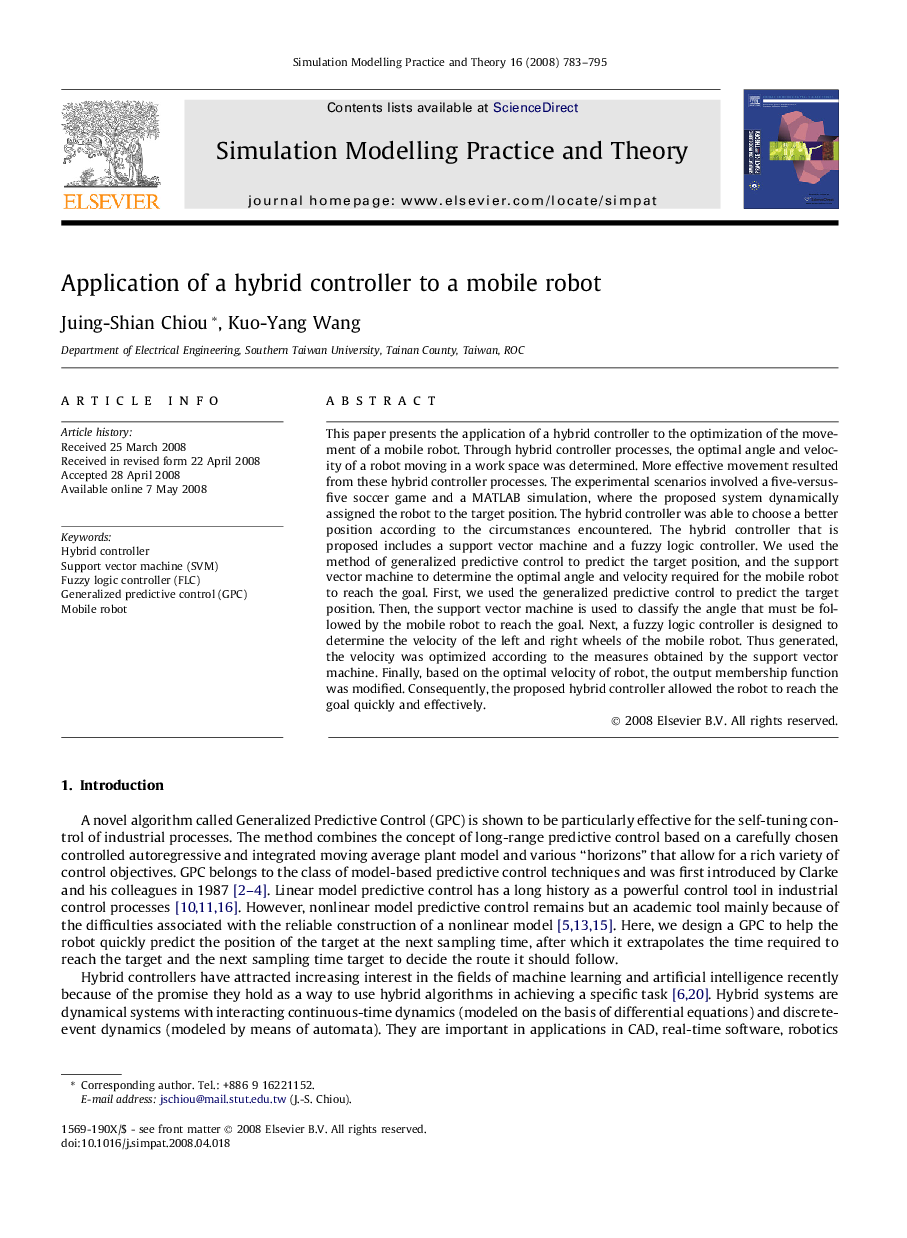| Article ID | Journal | Published Year | Pages | File Type |
|---|---|---|---|---|
| 491880 | Simulation Modelling Practice and Theory | 2008 | 13 Pages |
This paper presents the application of a hybrid controller to the optimization of the movement of a mobile robot. Through hybrid controller processes, the optimal angle and velocity of a robot moving in a work space was determined. More effective movement resulted from these hybrid controller processes. The experimental scenarios involved a five-versus-five soccer game and a MATLAB simulation, where the proposed system dynamically assigned the robot to the target position. The hybrid controller was able to choose a better position according to the circumstances encountered. The hybrid controller that is proposed includes a support vector machine and a fuzzy logic controller. We used the method of generalized predictive control to predict the target position, and the support vector machine to determine the optimal angle and velocity required for the mobile robot to reach the goal. First, we used the generalized predictive control to predict the target position. Then, the support vector machine is used to classify the angle that must be followed by the mobile robot to reach the goal. Next, a fuzzy logic controller is designed to determine the velocity of the left and right wheels of the mobile robot. Thus generated, the velocity was optimized according to the measures obtained by the support vector machine. Finally, based on the optimal velocity of robot, the output membership function was modified. Consequently, the proposed hybrid controller allowed the robot to reach the goal quickly and effectively.
